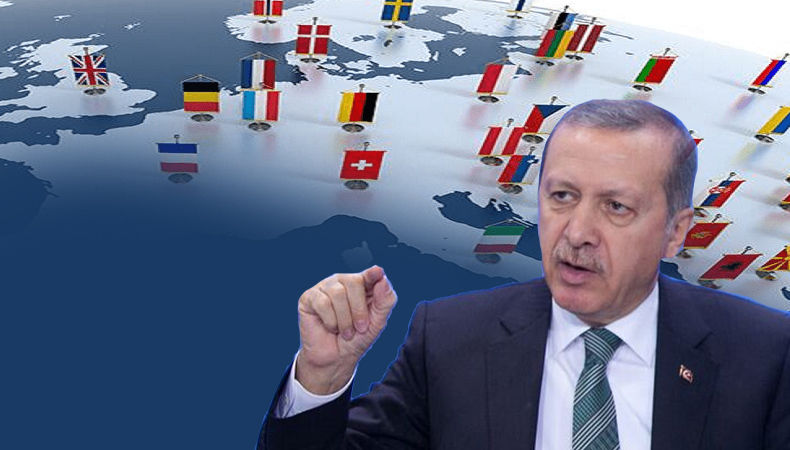A Look at Erdogan’s Policies and Their Impact on the World

Recep Tayyip Erdogan, an influential figure in Turkish politics, has faced scrutiny for his domestic policies. Let’s explore these policies and how they can affect the world.
Also Read – Turkey elections: Putin and Zelenskyy congratulates Erdogan on winning the election
Erdogan’s Background and Role in Turkish Politics
Erdogan, born in 1954, has been a dominant force in Turkish politics since his election in 2002. He has made significant changes to Turkey both domestically and internationally. As Prime Minister, Erdogan implemented reforms that strengthened the economy, improved relations with the West, and addressed corruption. He allowed women to wear headscarves
in public universities, which caused division in Turkish society. In 2010, Erdogan became \ President, a position with some power. Since then, he has concentrated power within his party and adopted an increasingly authoritarian approach. This has raised concerns about the future of democracy in Turkey.
Overview of Erdogan’s Domestic Policies
Erdogan’s domestic policies have sparked debate within and outside Turkey. Critics argue that his policies are authoritarian and have undermined democratic institutions, while supporters claim they have brought stability and prosperity.
During his tenure as Prime Minister and President, Erdogan pursued controversial policies.
He cracked down on media freedom, shutting down news outlets and imposing controls on social media. He also took a hardline stance against Kurdish separatists, leading to accusations of human rights violations against Kurds.
Erdogan’s policies have faced growing scrutiny. Critics argue that they have eroded democratic values, while supporters defend their effectiveness.
Impact on the Global Economy.
Erdogan’s policies have had significant consequences for the global economy. As Prime Minister and President, he oversaw periods of strong economic growth but also left the
the country with high levels of government debt and inflation.
Under Erdogan’s social policies, restrictions on alcohol sales, gambling, and cigarettes were
implemented. He also made prayer rooms compulsory in public buildings, which some see as limiting personal freedoms.
The Crackdown on Dissent and Regional Relationships
Erdogan’s crackdown on dissent and opposition has strained Turkey’s relationships with neighboring countries. Turkey’s involvement in the Syrian conflict has led to clashes with Syrian forces and an influx of refugees.
Tensions with Iraq have risen due to Turkish airstrikes against ISIS targets, which have also affected Kurdish forces. Turkey’s close ties with Saudi Arabia have created friction with Qatar, resulting in severed diplomatic relations between several countries.
Implications for US Foreign Policy
Erdogan’s domestic policies have implications for US foreign policy. Turkey has been a crucial NATO ally and partner in the fight against ISIS. However, concerns about Erdogan’s authoritarian rule and human rights abuses have strained the relationship.
Also Read – Turkey’s electoral board confirms first-round election results
The US must consider whether Turkey can be trusted as an ally and partner in combating terrorism. It also highlights the importance of promoting human rights and democracy when dealing with Turkey.
Conclusion
Erdogan’s domestic policies have had a significant impact on Turkey and the global stage. His concentration of power, control over the economy and media, and a crackdown on dissent have made Turkey increasingly authoritarian. These policies also have implications for global politics, as they are seen as oppressive in many countries. It is crucial to monitor
Erdogan’s domestic policy objectives to better understand their potential effects within and outside Turkey.




